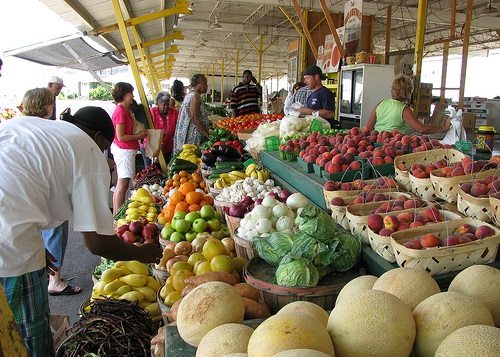
February 1, 2015; Boston Globe
It is hardly a revelation that access to healthy food improves health outcomes. Now, we see that fact acknowledged by nonprofit hospitals through their investments in various food programs for low-income patients.
Sign up for our free newsletters
Subscribe to NPQ's newsletters to have our top stories delivered directly to your inbox.
By signing up, you agree to our privacy policy and terms of use, and to receive messages from NPQ and our partners.
Bina Venkataraman writes in an opinion piece for the Boston Globe that:
“Food scarcity is…a force multiplier for disease: Research shows that adults facing severe food insecurity are more than twice as likely to have diabetes than those with regular access to healthy food. About one in three chronically ill patients in the United States cannot afford to buy food, medications, or both. The Center for American Progress estimates that in 2010, lack of access to healthy food was responsible for $130.5 billion in health care costs. The costs of this food insecurity will be increasingly borne by taxpayers and businesses as health care coverage expands under the Affordable Care Act.”
This, she writes, fits well into community benefit spending by nonprofit hospitals. She points out that the new rules published by the IRS at the end of last year encourage hospitals to help “ensure adequate nutrition” and address other socioeconomic and environmental factors affecting community health.
Venkataraman goes on to provide a number of examples around Massachusetts. For instance, Holy Family Hospital in Methuen runs a “prescription program” that provides patients with a dollar a day per household member to subsidize buying fresh food at farmers markets. Health Care Without Harm documents food access programs that Massachusetts hospitals are investing in (with a paper soon to follow) and calls for further measures, such as matching food stamp dollars for fresh produce.—Ruth McCambridge













